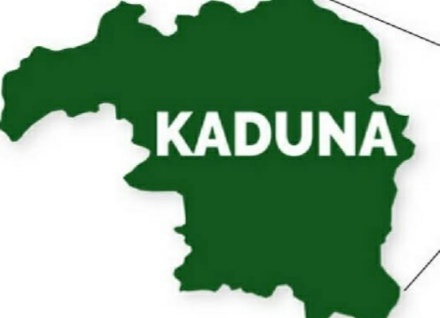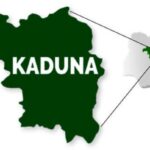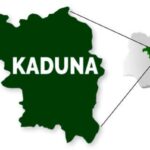On June 25, six young boys died horribly in Kaduna State. They drowned in Mbang River while returning home after sitting for the West African Junior School Examination. Their death in such a cruel manner was indeed news. But the greater news is how the society has swiftly absorbed their demise, and, in our characteristic manner, moved on. Perhaps, a voice somewhere is asking, “Next?”
Those boys died, not just because they were in Kaduna State; they died because they were in Nigeria. They died, not just because they were in a rural village; they died because they found themselves in a society that has ceased to place values on human beings. They died, not because there is a river between their school and where they lived. No; there are rivers everywhere, and engineering has made crossing rivers now a pleasure instead of the terror of passing through the valley of the shadow of death.
What happened to these six JSS3 boys could happen to any young person anywhere in Nigeria. It could also happen to an adult Nigerian who happens to be poor and lives in that village or a similar place. The picture emerging from the deaths tells us that those boys would have been alive today and would be going on to SSS classes, and perhaps, to the university. One or two, perhaps, could have become a medical doctor; or one or two could have become an engineer, a computer scientist or an artist or architect. And, even if they did not make it to the university or any tertiary institution, they would at least live their lives.
That could not be. Simon Chinge, the national public relations officer of Ribang Development Association, has let the world know the horror that life in the Ribang (Mbang) community in Kaura Local Government Area of Kaduna has become. The residents lack basic infrastructure, such as roads, schools and hospitals, among others. To overcome the limitations imposed on them by this, residents of this lack, the people have to walk for several kilometres each day in search of meaning.
- Police recover 3-month-old baby in front of Anambra school
- 96 suspects arrested as police raid criminal hideouts in FCT
“The Mbang River has been a death trap for our people over the years,’’ he said, noting that before the community can access any school or hospital facility, they have to travel for about eight kilometres.
Mbang River, also known as Kaduna River, is a waterway for the community. The river derived its name from the native Hausa word for crocodiles because the river and its environs are infested by the crocks.
Perhaps, of all the media reports on this incident, the one by The Source magazine seems to have captured the message of the tragedy thus: “The teenagers had finished writing their examination in school, happy that they had put that behind them, and looking forward to joining their siblings and parents shortly. But that was not to be. They drowned on Tuesday, June 25, in the “fiesty” River Mbang, Ribang village, Kaura Local Government Area, Kaduna,” the magazine wrote in its story, with the caption: Tears, Anger, Pain As Six Students Drown, Crossing River Mbang, Kaduna, After Writing Their Exams.
The finest point in The Source’s story is this paragraph: “The circumstances surrounding their death, by drowning, are not public yet. It is not known whether they were swimming or in a canoe to cross the river, or wading through the river to cross to the other side, but Pastor Simon Ishaku, the national publicity relations officer, Ribang Development Association, was quoted as saying, “The Mbang River has been a danger to our community for years.”
There is a blame game here, but it is the wrong one. Pastor Ishaku (I believe he is the same person whose other name is given as Chinge), said Mbang River had been a danger to the community for years. Well, sympathisers will bear with him, for, after all, it was the river that swallowed the hapless boys. But in the real sense of the matter, Mbang River is only a scapegoat.
The real danger to the people is the authorities that should have provided the infrastructure on this side of the river but did not. The authorities could also have built a bridge across the river, but they did not. Building bridges has become a key measure to preserve life and ensure that social and economic activities are not dislocated. But it has become a political decision, no longer one that must be done to prevent the sad event that took the lives of Manasseh Monday, Musa John, Pius David, Monday Ayuba, David Danlami and Yahuza Audu.
The danger posed by the Mbang River should have compelled the governments to live up to their responsibility by providing the basic infrastructure in the community, where the six gentlemen lived.
The story of the SIX boys is not just another accident story, it is a poverty story. It is about those who have been left behind by the development train. That community typifies for us the concept of multi-dimensional poverty: they have to travel several hours to access basic services, such as health, education etc.
In 2022, the National Bureau of Statistics told a bewildered country that 63 per cent or 133 million Nigerians were multi-dimensionally poor. With the current population figure being projected for the country, that number has risen, not decreased.

 Join Daily Trust WhatsApp Community For Quick Access To News and Happenings Around You.
Join Daily Trust WhatsApp Community For Quick Access To News and Happenings Around You.


